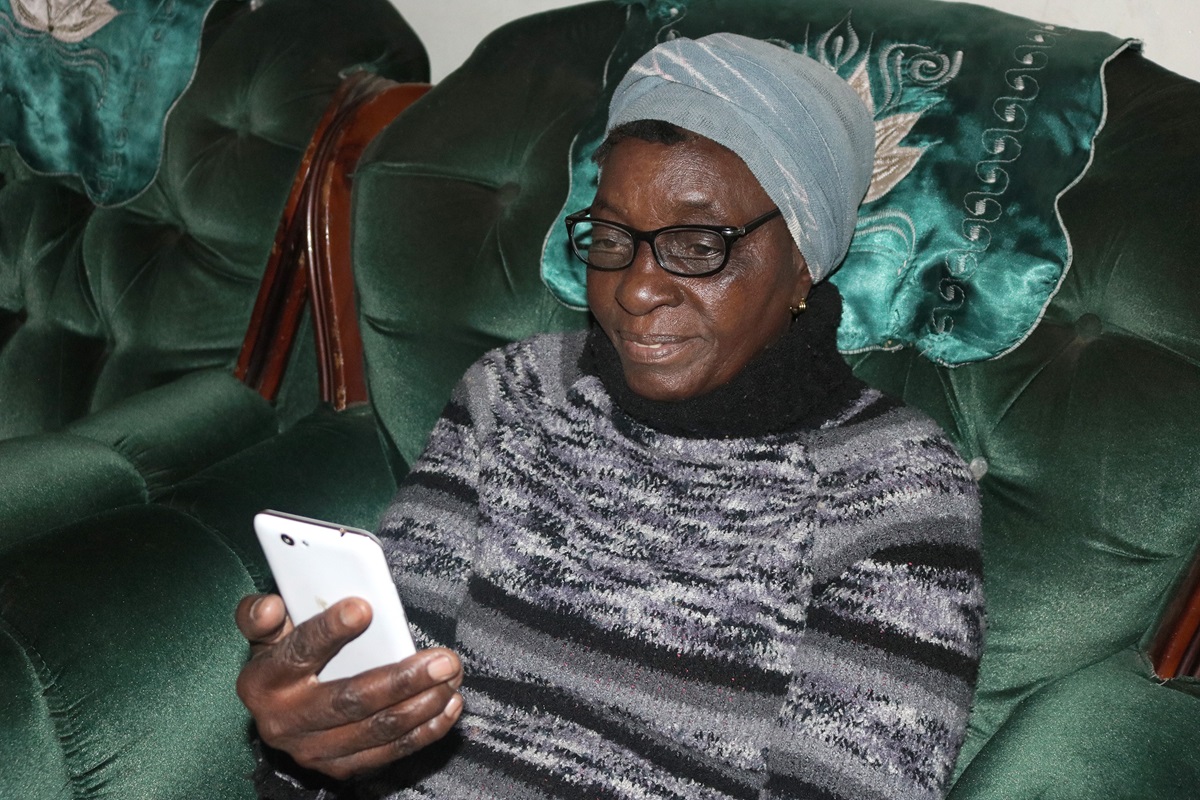United Methodists in Zimbabwe are using social media to follow church programs and attend Sunday services even if they are physically unable to attend church.
Churches are using social media to reach a larger audience as increased access to the internet has transformed the way people communicate in Zimbabwe.
“Social media has become one tool that is necessitating a quicker and urgent fulfillment of the Great Commission which calls us to go to all the world,” said the Rev. Taurai Emmanuel Maforo, pastor at The United Methodist Church Zimbabwe and a communicator for the Zimbabwe Episcopal Area.
With millions in Africa gathered on social media, it has created a medium in which churches can spread the Gospel through videos and other means.
“The goal of social media evangelism is to make disciples of Jesus Christ for the transformation of the world,” said Elison Kamupira, evangelist for the Harare East District. “Every disciple created online will become a real member in a real church, somewhere in his or her local community.”
Churches are regularly posting sermons on Facebook, which creates an opportunity for connecting as people watch, comment on and share the videos.
Spreading the Gospel where people already are is efficient, said Mwazvita Madondo, the chairperson of Harare East District History, Archives and Communications.
“(It is) an urge to reach out to more people and create interest through the most popular communication channels,” she said.
There are many people on social media who are heartbroken and looking for a message that can give them hope or strength, Kamupira said. Many of these people may learn how to overcome their challenges with help from social media, where a motivational post can plant a seed in their spirit.
“Many people have received strength by reading or watching evangelism posts online, and some people gave their lives to Christ after interacting with the church online,” Kamupira said. “Many backsliders have been converted after reading a post or watching a video on social media.”
The church has immensely benefited from the better use of technology, said Tinashe Dzotizei, Cranborne United Methodist Church communicator.
“Most importantly, the church has remained relevant in this as it evolves to meet modern trends and new ways to spread the Gospel and information,” Dzotizei said.
Live broadcasting allows hundreds, even thousands of people to attend church services virtually.
“The livestream initiative has proven to be a very useful tool in terms of greater outreach of the Gospel,” said Donald Mutepfa, mission connectional ministries chairperson for The United Methodist Church in the United Kingdom. “Even though the physical distance is huge, streaming services have helped cover that gap and connect on a spiritual level. It’s a satisfying feeling seeing friends and family still pushing strongly in the spiritual works.”
Dzotizei said that the traffic and attention received from live events is “terrific.”
“The foreign-based members are the major drivers as they share the live feeds to fellow compatriots also abroad and the conversation keeps going,” Dzotizei said. “The success of an online ministry hinges on engagement and this has been very positive and unbelievable.”
Madondo appreciated the support given by the diaspora community. Some members abroad have funded churches to go live on social media because they feel included in its initiatives.
There are many reasons people follow social media from their home country.
The online church is offering support and guidance to people who are far away from their homes. College students who are studying abroad and people who have relocated to other countries in search of better opportunities still regard the church as part of their home. Livestreaming and offering recorded sermons online is helping them stay connected and rooted to the church.
“These people bear testimony of the merits of technology,” Dzotizei said. “Instead of suffering from the homesick syndrome, spiritually, Facebook has been a major force in terms of keeping them posted, nourished and engaged.”
Social media also serves homebound people physically unable to attend church services, Dzotizei said.
“They feel the Sunday moment from the comfort of their homes, watching live broadcast via their mobile phones and laptops, others even bringing testimonies of how they have been revived,” Dzotizei said.
Gone are the days when missing a sermon means there is no more opportunity to see it again.
WhatsApp groups for small groups like women, youth, men and single parents have helped people to keep abreast of what is happening in the church and share ideas. Others churches have created newsletters sent via mailing lists on email.
“This has been an uplifting experience connecting with my home church and I cannot get enough of it,” Mutepfa said. “I hope it will … grow and gain a huge following.”
Muzerengwa is a communicator for the Zimbabwe East Conference.
News media contact: Vicki Brown, news editor, newsdesk@umcom.org or 615-742-5469. To read more United Methodist news, subscribe to the free Daily or Weekly Digests.
Like what you're reading? Support the ministry of UM News! Your support ensures the latest denominational news, dynamic stories and informative articles will continue to connect our global community. Make a tax-deductible donation at ResourceUMC.org/GiveUMCom.




